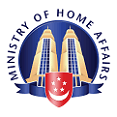Combating Trafficking in Persons
Pages in Combating trafficking in persons
Last updated 1 February 2026
About Human Trafficking
Trafficking in persons (TIP) is a transnational crime which exploits vulnerable victims.
Funding Programmes
Grants and funding for organisations that can raise public awareness on human trafficking.
Key Legislation
See the resources below for more information on the key legislation against Human Trafficking in Singapore.
Recognise a Victim
Human trafficking is a crime that can go unnoticed easily. Everyone can help by learning the types of trafficking and paying attention to the people around us.
Report Human Trafficking
Resources on how you can report human trafficking.
What is Singapore doing
Singapore takes a serious view of human trafficking.
